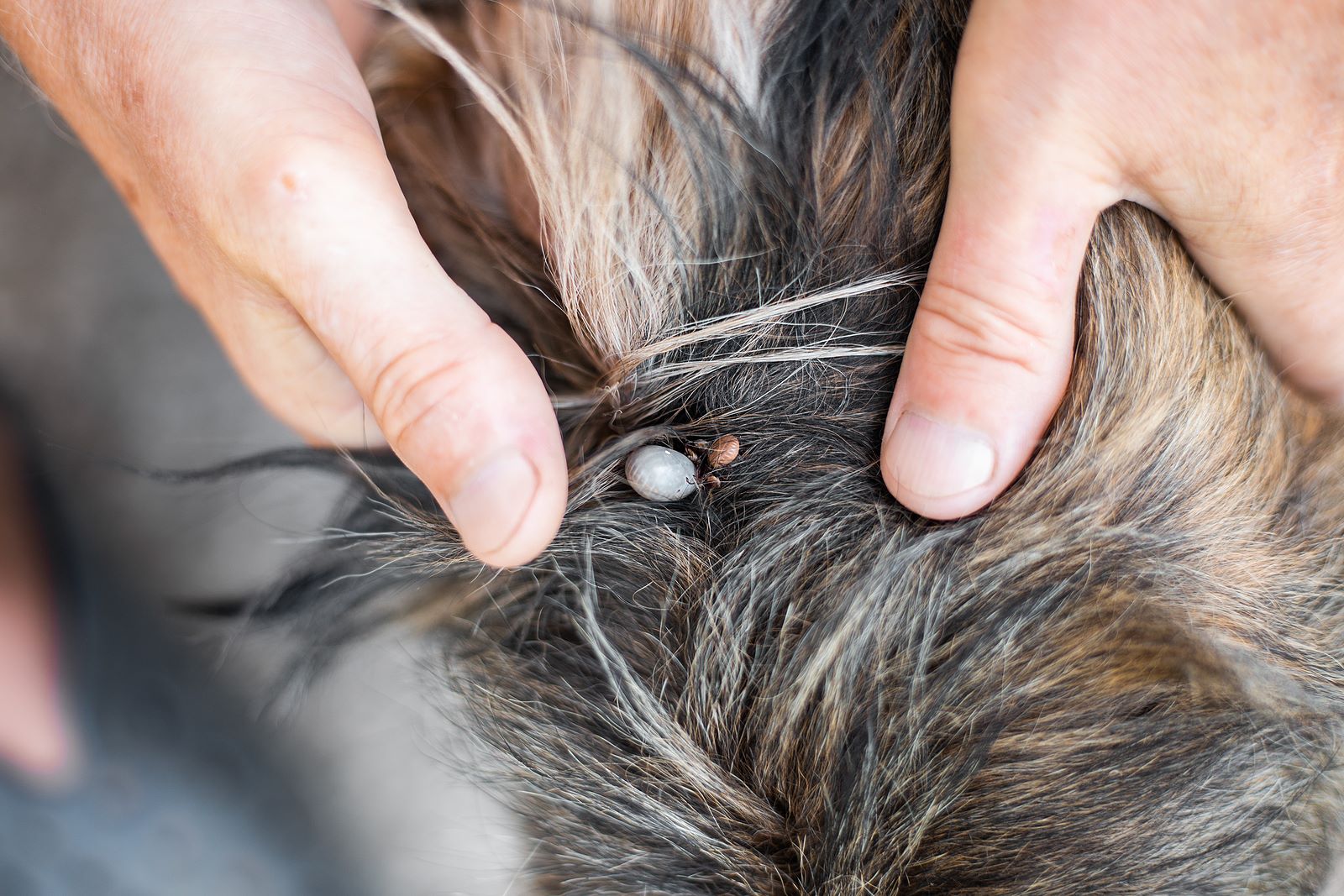Pet owners should be aware of two types of parasites in dogs: internal and external parasites.
A parasite is defined by the Centers for Disease Control as “an organism that lives on or in a host organism and obtains its sustenance from or at the expense of its host.” External parasites such as fleas, ticks, and mites can be detected in your dog’s hair or on or in their skin, but internal parasites such as heartworm and intestinal worms dwell within their body.
These parasites, whether internal or external, can all cause sickness for your precious pooch. In this article, we’ll tell you the different types of parasites in dogs you need to watch out for!
External Parasites in Dogs
External parasites, as the name implies, can be found outside your pet. These parasites may be exceedingly irritating to dogs, causing major skin issues and potentially transmitting illness.
Fleas
Fleas can make life difficult and very itchy for your pet. These parasites go through numerous distinct life phases, beginning with eggs and progressing to larvae, pupae, and eventually reproducing, blood-sucking adults.
Ear Mites
Ear mites are tiny mites that infect and multiply in the ears of dogs, causing thick black dirt and pain. Animals become contaminated with ear mites by direct contact with another diseased animal.
Ticks
Ticks on dogs are typically around the size of an apple seed and might vary in color depending on the species. They can look ‘engorged’ after attaching to the skin and sucking blood from their host.
Lice
Canine lice cling to dog fur and are tough to remove. Infestations spread from animal to animal as well as through contaminated bedding and grooming utensils.
Internal Parasites in Dogs
Internal parasites, unlike external parasites, live inside the body. Except for heartworms and lungworms, which infect the heart and lungs, most internal parasites dwell in dogs’ intestines.
Hookworms
Hookworms are among the most common intestinal parasites in dogs. The hookworm is around 12″ to 1″ (1-2 cm) long and adheres to the small intestinal lining, where it feeds on blood.
Roundworms
Roundworms are among the most frequent types of intestinal worms in dogs. Toxocara canis (T. canis) and Toxascaris leonina are the two forms of roundworms seen in dogs. T. Canis is more frequent in pups, although it may also be passed on to humans.
Whipworms
Whipworms are intestinal parasites (Trichuris) that are mostly seen in dogs but can also be found in cats. The front end of these little worms is slender and whip-like, while the back end is bulkier. They feed on blood and adhere themselves to the walls of the big intestine.
Tapeworms
Tapeworms are intestinal parasites that are flat and ribbon-like. Fortunately, they seldom cause significant illnesses. Dipylidium caninum is the most frequent in dogs, however, other species exist. They are mainly spread by eating fleas, although certain species can be spread by eating raw meat.
Heartworms
Heartworm illness is caused by a big roundworm parasite that dwells mostly in lung and cardiac blood channels. Heartworm is spread by mosquitoes. While it is most common in the southern states, it has been detected in every state.
Giardia
Giardia is a single-celled microscopic parasite that can exist in the small intestine of dogs and cats. It is spread through contaminated food, water, or contact with infected dogs. This is why you should be careful about letting your dog in public pools, no matter how fun it may seem.
Conclusion
To help prevent parasites, your veterinarian may prescribe medication, but owners should also practice good pet hygiene and keep their dogs’ living areas clean and clear of waste.
Keep your pet safe from parasites today! For more information about dog health and dog care, check out our PetFitnes blog!







